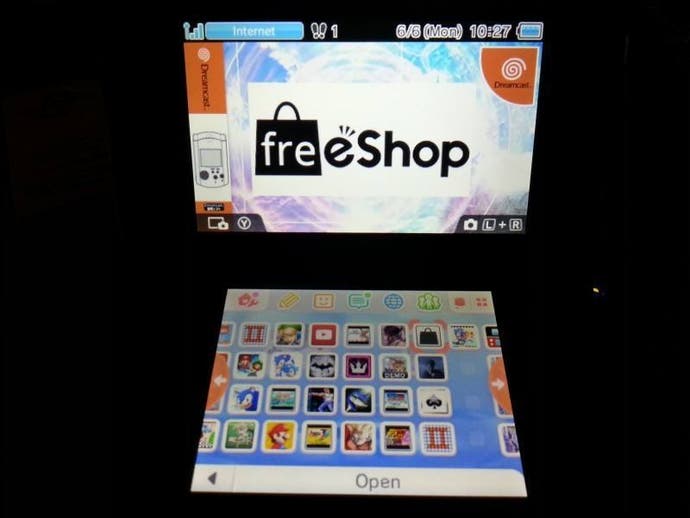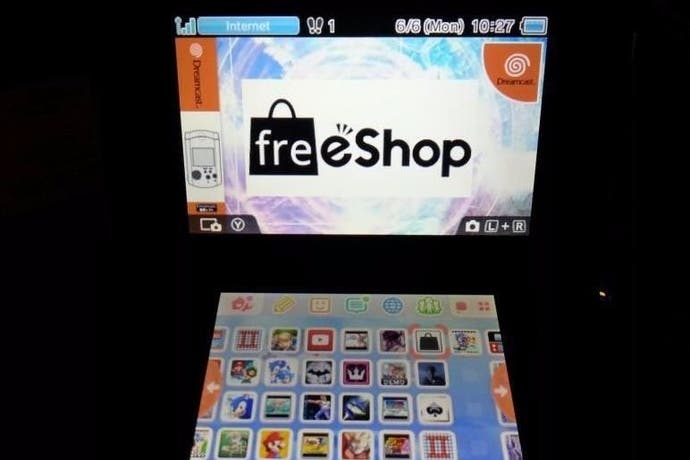Nintendo prende provvedimenti contro l'homebrew per 3DS FreeShop
L'homebrew permetteva alla pirateria di proliferare.
Freeshop è un software homebrew software pubblicizzato come un tool per scaricare i giochi eShop 3DS già in vostro possesso. Tuttavia, molti sfruttavano un exploit del software per scaricare anche giochi non regolarmente acquistati (da qui il nome FreeShop).
Nintendo ha preso provvedimenti contro il sito che distribuiva il software, accompagnando con un esposto l'azione intrapresa. Secondo Nintendo, il software viola le norme di legalità, oltre ad utilizzare il logo 3DS protetto da copyright senza alcuna autorizzazione.

Ecco la nota legale di Nintendo:
The freeShop application provided at infringes Nintendo's copyrights, because the application circumvents Nintendo's technological protection measures in violation of the Digital Millennium Copyright Act. Nintendo encrypts the game files available from its eShop servers to prevent users from accessing those files without paying for them. Nintendo believes the freeShop application circumvents Nintendo's protection measures by decrypting the game files accessible from its eShop servers, allowing freeShop users to access and play Nintendo's eShop games for free. The freeShop application also contains unauthorized copies of the Nintendo 3DS Logo Data file, covered by U.S. Copyright Reg. No. PA0001781880, which further infringes Nintendo's rights.
Del resto Nintendo aveva recentemente pubblicato un bando di concorso dedicato alla scoperta di falle nella sicurezza del Nintendo 3DS, quindi questa azione non sorprende più di tanto.
Di contro, The Cruel, l'autore della pagina Freeshop Github, ha risposto con una reazione non proprio pacifica:
If anyone wants to know whether I'm going to counter it, I'm not yet sure. That could permit them to file lawsuit against me...to claim [Freeshop] circumvents any protections is laughable, though I'm unsure if it's legally sound (law is often laughable itself). It only circumvents protections if people utilize title keys they did not purchase or obtain legally. If people illegally obtain the password/PINs of a person's bank account, you can't criticize the banking website for facilitating theft.
In pratica, l'homebrew in sé stesso non sarebbe illegale, ma è l'uso che ne fanno gli utenti a diventarlo. In pratica la stessa annosa questione dei programmi di filesharing come napster, iMesh, eMule, ed i numerosi client torrent. Chi compra un'arma non diventa potenzialmente un killer no?
Cosa ne pensate di questa faccenda? Va punito il singolo atto criminale o va stroncata sul nascere la possibilità di compierlo?

